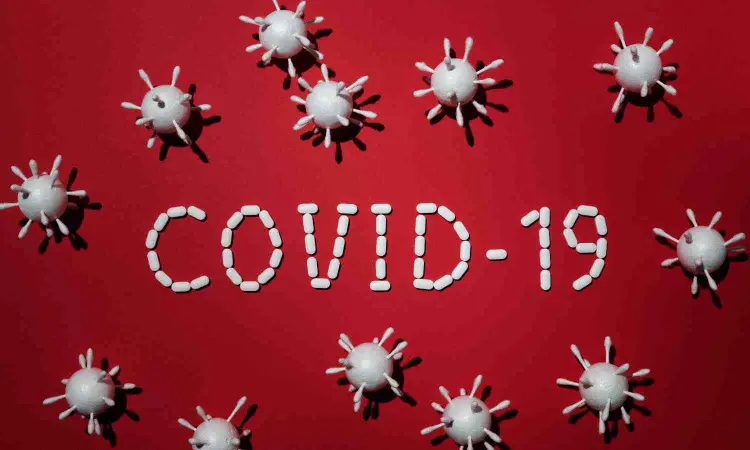- Home
- Medical news & Guidelines
- Anesthesiology
- Cardiology and CTVS
- Critical Care
- Dentistry
- Dermatology
- Diabetes and Endocrinology
- ENT
- Gastroenterology
- Medicine
- Nephrology
- Neurology
- Obstretics-Gynaecology
- Oncology
- Ophthalmology
- Orthopaedics
- Pediatrics-Neonatology
- Psychiatry
- Pulmonology
- Radiology
- Surgery
- Urology
- Laboratory Medicine
- Diet
- Nursing
- Paramedical
- Physiotherapy
- Health news
- Fact Check
- Bone Health Fact Check
- Brain Health Fact Check
- Cancer Related Fact Check
- Child Care Fact Check
- Dental and oral health fact check
- Diabetes and metabolic health fact check
- Diet and Nutrition Fact Check
- Eye and ENT Care Fact Check
- Fitness fact check
- Gut health fact check
- Heart health fact check
- Kidney health fact check
- Medical education fact check
- Men's health fact check
- Respiratory fact check
- Skin and hair care fact check
- Vaccine and Immunization fact check
- Women's health fact check
- AYUSH
- State News
- Andaman and Nicobar Islands
- Andhra Pradesh
- Arunachal Pradesh
- Assam
- Bihar
- Chandigarh
- Chattisgarh
- Dadra and Nagar Haveli
- Daman and Diu
- Delhi
- Goa
- Gujarat
- Haryana
- Himachal Pradesh
- Jammu & Kashmir
- Jharkhand
- Karnataka
- Kerala
- Ladakh
- Lakshadweep
- Madhya Pradesh
- Maharashtra
- Manipur
- Meghalaya
- Mizoram
- Nagaland
- Odisha
- Puducherry
- Punjab
- Rajasthan
- Sikkim
- Tamil Nadu
- Telangana
- Tripura
- Uttar Pradesh
- Uttrakhand
- West Bengal
- Medical Education
- Industry
Electrical nerve stimulation may ease long COVID pain and fatigue, claims research

A wearable electrical nerve stimulation device can provide relief to people experiencing the persistent pain and fatigue linked to long COVID, a study co-led by UCLA and Baylor College of Medicine researchers suggests.
Long-COVID, a complex and lingering condition following COVID-19 recovery, affects approximately 1 in 13 adults in the U.S. Symptoms such as widespread pain, fatigue, and muscle weakness often continue to disrupt daily activities, including walking and basic tasks.
The study, published in the peer-reviewed Nature Scientific Reports, focused on a wearable Transcutaneous Electrical Nerve Stimulation (TENS) device, which uses low-voltage electrical currents to reduce pain, fatigue, and mobility issues associated with long-COVID.
The project was co-led by Dr. Bijan Najafi, research director of the Center for Advanced Surgical & Interventional Technology at UCLA Health and co-director of NSF IUCRC Center to Stream HealthCare in Place (C2SHIP), who said the device could have wider applications.
“While this study focused on managing pain and fatigue caused by long COVID, it may also have potential applications for addressing similar symptoms in individuals with other respiratory diseases, those who have experienced extended ICU stays and developed post-hospitalization weaknesses, and conditions involving chronic fatigue and pain, such as fibromyalgia or chemotherapy-related side effects,” Najafi said. “But further studies are needed to confirm these potential uses.”
In the study, 25 participants with chronic musculoskeletal pain, fatigue, and gait difficulties were assigned either a high-dose (active) TENS device or a low-dose (placebo) device. Both groups used the TENS device for three to five hours daily over a four-week period.
Researchers measured participants’ pain levels, fatigue, and walking performance before and after the therapy period. Findings indicated that the high-dose TENS group experienced notable improvements in pain relief (26.1% more relief compared to placebo) and walking ability (8% during fast walking), suggesting that wearable TENS therapy may help reduce long-COVID’s impact on daily life.
The high-dose TENS group also reported a slightly higher perceived benefit (71.2%) compared to the low-dose group (61.4%), underscoring the potential of wearable TENS technology to support long-COVID recovery.
One factor in the study’s success was likely the high rate of daily device usage, Najafi said. The wearable nature of the TENS device allowed participants to use it seamlessly throughout the day, without disrupting their routines.
“This wearable TENS system offered immediate, on-demand relief from pain and fatigue, making it easy to integrate into daily activities,” Najafi said.
He also cautioned that more research is needed. This study provides some hope for finding an effective, non-invasive solution for managing lingering COVID-19 symptoms that continue to affect millions,” he said. “But our sample size was limited, so further research is needed to confirm these findings.”
Reference:
Zulbaran-Rojas, A., Bara, R., Lee, M. et al. Transcutaneous electrical nerve stimulation for fibromyalgia-like syndrome in patients with Long-COVID: a pilot randomized clinical trial. Sci Rep 14, 27224 (2024). https://doi.org/10.1038/s41598-024-78651-5
Dr Kamal Kant Kohli-MBBS, DTCD- a chest specialist with more than 30 years of practice and a flair for writing clinical articles, Dr Kamal Kant Kohli joined Medical Dialogues as a Chief Editor of Medical News. Besides writing articles, as an editor, he proofreads and verifies all the medical content published on Medical Dialogues including those coming from journals, studies,medical conferences,guidelines etc. Email: drkohli@medicaldialogues.in. Contact no. 011-43720751


